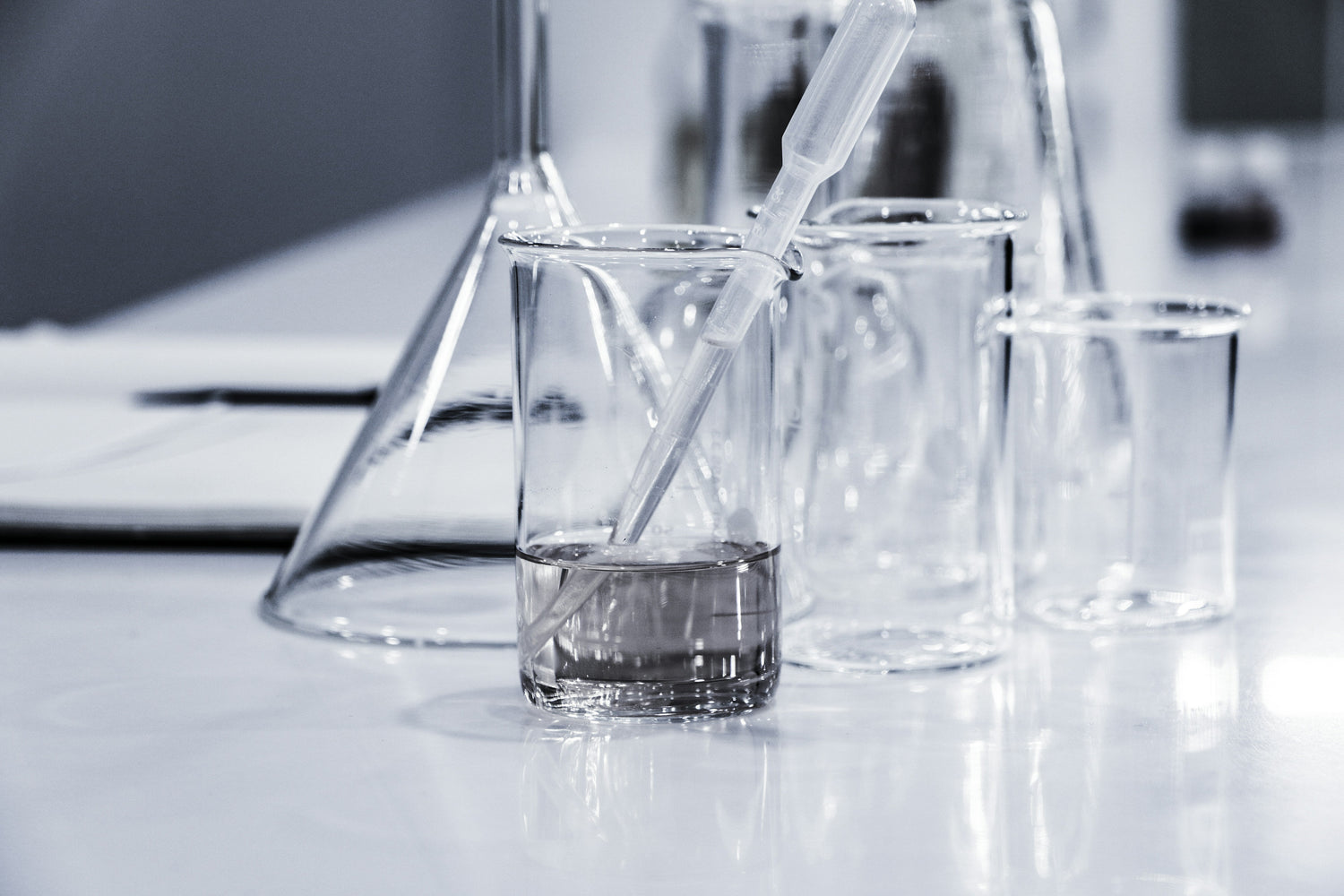The Truth About Sugar Alcohols: What They Are and How They Affect Your Body
Trying to make better choices for our bodies is something we all strive for. One ingredient that often slips past the radar, lurking in "healthy" and "natural" products, is sugar alcohols. While these artificial sweeteners are marketed as healthier alternatives to sugar, but they can negatively affect your digestion, metabolism, and overall health.
Let's dive deep into what sugar alcohols are, how they're made, and why they're far from the clean, natural ingredients your body deserves.
What Are Sugar Alcohols?
Sugar alcohols, also known as polyols, are chemically modified carbohydrates designed to mimic the sweetness of sugar without the same caloric impact. Unlike table sugar, which is quickly absorbed by the body, sugar alcohols have a different structure that makes them harder to digest. Some of the most common sugar alcohols found in foods and supplements include:
- Xylitol
- Erythritol
- Maltitol
- Sorbitol
- Mannitol
- Lactitol
These ingredients are often used in sugar-free protein bars, gum, keto-friendly snacks, and even so-called "natural" supplements. But what food manufacturers won't tell you is that sugar alcohols can have profound effects on your body—ones you don't want to ignore [1].
The Hidden Effects of Sugar Alcohols on Your Body
It's true that sugar alcohols have fewer calories than sugar, but they come with a hefty price. Here's how they can negatively impact your health:
1. Digestive Distress & Bloating
Sugar alcohols are not fully absorbed by the body, so they travel to the large intestine, where they ferment and draw in water. This can cause uncomfortable side effects, such as:
- Gas and bloating
- Stomach cramps
- Diarrhea
- Digestive upset (even in small amounts!)
Ever wonder why eating a "healthy" protein bar leaves you feeling bloated and sluggish? The culprit is likely sugar alcohols. The FDA requires a warning label on products containing excessive amounts of sorbitol or mannitol because of their well-known laxative effects [2].
2. Metabolic Confusion & Sugar Cravings
Sugar alcohols are often marketed as "keto-friendly," but they can still impact insulin and blood sugar levels. While erythritol and xylitol have minimal effects on blood sugar, others—like maltitol—can still cause spikes. This can increase cravings, making it harder to stick to your fitness and nutrition goals [3].
Additionally, because sugar alcohols are up to 10 times sweeter than sugar, they train your taste buds to crave even sweeter foods. This can sabotage your efforts to reduce sugar intake, making you more dependent on artificially sweetened products [4].
3. Man-Made, Not Natural
Many brands claim their products are "all-natural" while sneaking in sugar alcohols—an outright contradiction. These sweeteners don't come from whole foods; they're manufactured through industrial processing using hydrogenation and fermentation. If you're serious about fueling your body with real, whole-food ingredients, sugar alcohols should have no place in your diet [5].
Why Companies Use Sugar Alcohols (And Why We Don't)
Brands use sugar alcohols to claim their products are "low sugar" while keeping them sweet and palatable. However, these processed sweeteners do more harm than good.
At our supplement brand, we stand by real, clean ingredients—never sugar alcohols. We prioritize quality because what you put in your body matters.
The Bottom Line
If you care about your health, avoid sugar alcohols. Their artificial nature, digestive impact, and effect on cravings make them a poor substitute for real, whole foods.
Always check ingredient labels—many "natural" products aren't as clean as they seem.
References
- Harvard Health Publishing. (2023, December 18). How healthy is sugar alcohol? Harvard Health. https://www.health.harvard.edu/blog/how-healthy-is-sugar-alcohol-202312183002
- Cleveland Clinic. (2024, June 15). What you should know about sugar alcohols. Cleveland Clinic Health Essentials. https://health.clevelandclinic.org/what-to-know-about-sugar-alcohols
- Yale New Haven Hospital. (n.d.). Eat any sugar alcohol lately? https://www.ynhh.org/services/nutrition/sugar-alcohol
- Healthline. (2019, July 25). What are sugar alcohols, and are they a healthy sugar swap? Healthline. https://www.healthline.com/nutrition/sugar-alcohols-good-or-bad
- Health.com. (2024, August 10). What to know about sugar alcohol and how it affects the body. Health. https://www.health.com/sugar-alcohol-8692292



Leave a comment
All comments are moderated before being published.
This site is protected by hCaptcha and the hCaptcha Privacy Policy and Terms of Service apply.